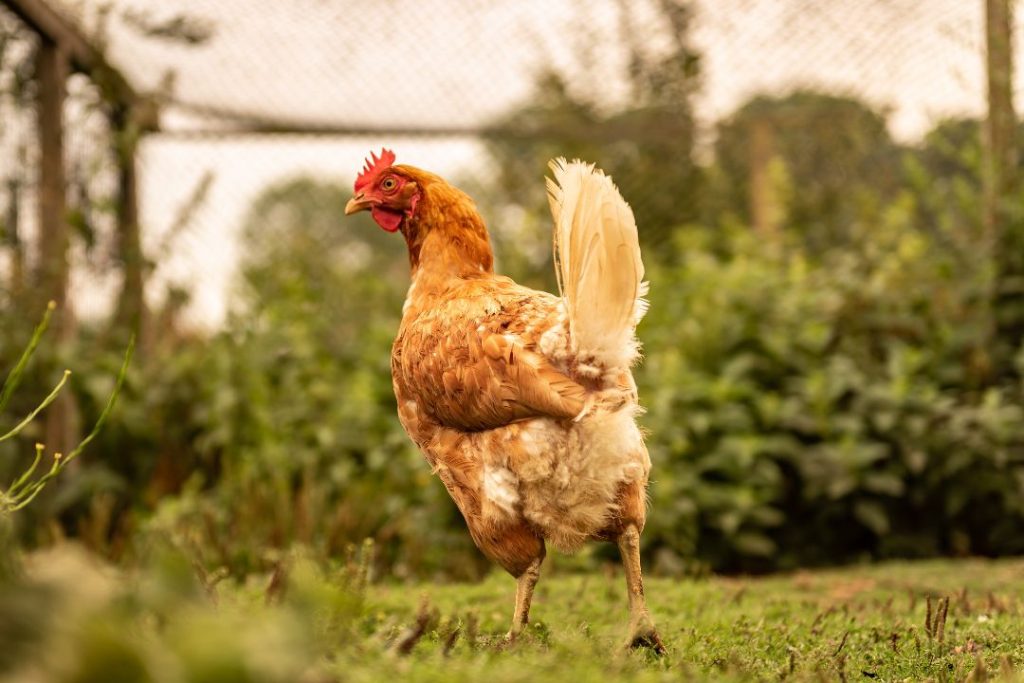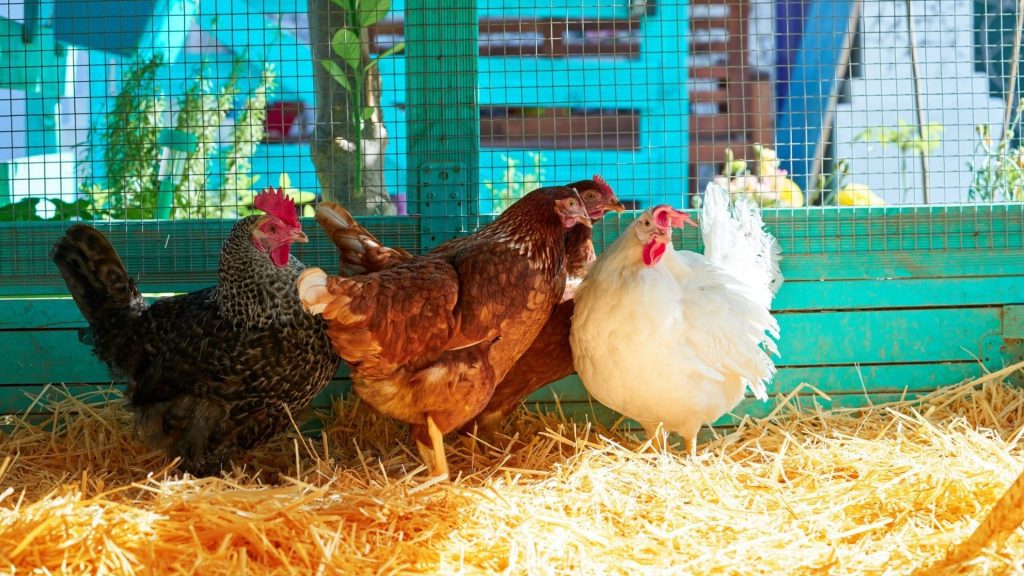Far from mere clucking and pecking, chickens exhibit behaviors that hint at a deeper understanding of loss and community. From their behaviour you may ask a question that seem peculiar at first glance. The question is “Do chickens mourn the death of other chickens?”
This question opens the door to a world of surprising emotional complexity within these common birds. The fascinating and unexpected answer to this question is, Yes.
You chickens do show signs of mourning. Also they react to their flock member’s death in ways that are unmistakable to those who know where to look.
In today’s guide we will shed light on this topic in details. So, keep reading!
Do Chicken Have Emotions?
Chickens are gregarious animals that create close ties with other members of their flock. They exhibit feelings such as anxiety, contentment, and distress through a variety of vocalizations and body language.
The question “Do chickens have emotions?” may appear unusual. Yet it leads us into an exciting investigation into the emotional lives of these common birds.
Chickens, often seen as simple farm animals, are increasingly being recognized for their complex behaviors and emotional responses.
What Are The Emotional Complexity in Chickens?
Chickens are sociable animals that live in groups with clearly established hierarchies known as the “pecking order.”
Chickens communicate with one another using a variety of vocalizations and body language within various social frameworks. They show feelings like fear, contentment, curiosity, and distress.
Mourning or Mere Reaction?
The question of whether chickens mourn the death of other chickens is complex. While they may not mourn in the human sense, observations and studies have shown that chickens react to the death or absence of a flock member.
Signs of Emotion
Observing chickens closely reveals signs of emotional expression:
- Vocalizations: Chickens have a wide range of sounds that convey different emotions. A contented purring, alarmed clucking, or distressed squawking can tell a lot about what a chicken is feeling.
- Body Language: Chickens use body language to communicate. A puffed-up chest might indicate confidence, while drooping wings could signal submission or illness.
- Social Interactions: Chickens form bonds with specific flock members and may show preference or aversion to certain individuals, indicating a level of emotional connection.
Signs of Distress
Chickens display specific behaviors that may indicate distress or awareness of loss, including:
- Changes in vocalization
- Altered eating habits
- Clinginess to human caregivers or other flock members
Scientific Insights
Recent studies have shed light on the emotional lives of chickens. Chickens are capable of empathy, recognizing and responding to distress in other chickens.
They can also exhibit long-term memory and problem-solving abilities. Further this indicate emotional and cognitive complexity level.
Practical Implications
Understanding that chickens have emotions has practical implications, especially for those who keep or care for chickens.
Recognizing signs of distress, contentment, or illness can lead to better care and well-being for the birds. It also raises ethical considerations regarding their treatment, housing, and overall welfare.
So, do chickens have emotions? The evidence suggests that they do. While their emotions may not be identical to human emotions, chickens exhibit behaviors and responses that indicate a level of emotional complexity.
This understanding challenges us to see chickens not merely as food sources but as living beings with social structures, relationships, and feelings. This exploration into the emotional lives of chickens invites us to approach them with greater empathy and consideration.
It also reminds us that the world of animal emotions is rich and diverse, filled with surprises and insights that can deepen our connection to the creatures we share our planet with.
Do Chickens Mourn the Death of Other Chickens?
It’s a question that invites us to peer into the complex world of animal emotions, specifically those of the humble chicken. Chickens, often seen merely as providers of eggs or meat, are in fact social creatures with intricate behaviors and relationships within their flock.
The concept of mourning is typically associated with humans and certain mammals. But the idea that chickens might experience a form of grief or distress at the loss of a fellow flock member is both fascinating and supported by observations.
Chicken lives in groups with well-defined social structures. It is often referred to as the “pecking order.” Within this hierarchy, chickens form bonds and relationships, recognizing individual members of their flock.
Some chickens may appear to search for the missing member. Others may become clingier or attached to their human caregivers or other flock members.
The reaction of chickens to the death of a fellow bird is not uniform. And their reaction can vary based on factors such as the relationship between the chickens, the social dynamics of the flock, and individual personalities.
Some chickens may appear largely unaffected, while others may show clear signs of awareness and reaction to the loss. The idea that chickens might mourn is supported by research into their cognitive abilities and emotional responses.
Studies have shown that chickens are capable of empathy, recognizing and responding to distress in other chickens. They can also exhibit long-term memory, recognizing individual humans and other animals.
What Is The Science Behind Chicken Mourning?
The term “mourning” might not fully capture the experience of a chicken in the way it does for humans. But the behaviors and reactions observed in chickens in response to death or separation from a flock member are indicative of a level of emotional complexity. It goes beyond mere instinct or survival mechanisms.
1. Research and Observations
Various studies and anecdotal evidence have explored the emotional responses of chickens. Some researchers argue that chickens have the capacity to feel empathy, while others believe their reactions are more instinctual.
2. The Brain and Emotions
The chicken’s brain, though different from a human’s, has structures that allow for emotional processing. Understanding these can help us better interpret their behaviors.
3. The Pecking Order
Chickens establish a social hierarchy known as the “pecking order.” The death of a chicken can disrupt this order, leading to observable changes in behavior.
Bonding and Relationships
Chickens form bonds with specific flock members. The loss of a bonded companion may lead to noticeable changes in a chicken’s behavior and interactions.
Practical Implications for Chicken Keepers
For those who keep chickens, recognizing signs of distress and understanding how to respond can enhance the well-being of the flock.
Understanding the emotional lives of chickens leads to ethical considerations in their care, housing, and treatment.
Bottom Line
And that’s the end of this guide on “Do chickens mourn the death of other chickens?” While they may not mourn in the way humans do, chickens exhibit behaviors and reactions that indicate awareness of loss and distress.
This exploration into the emotional lives of chickens reveals a complexity that challenges our understanding of these familiar birds.
Whether mourning or reacting, chickens’ responses to loss offer a glimpse into a world that’s richer and more nuanced than many might imagine.



